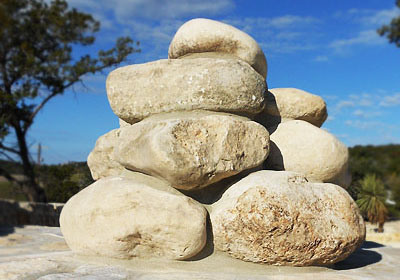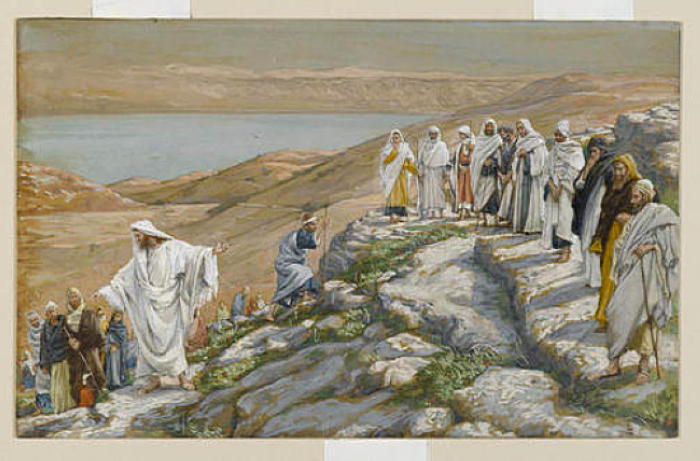Stories these days are all about plot and action, everything else is considered extra. This is an unfortunate and new thing. Most of humanity viewed a story as a way to take a journey through a place other than yourself, to become a better person. It was not a means of titillating your baser urges, the pages illuminated your mind and give wisdom to illuminate your steps. We see this with the works of Homer, Aesop and many other ancient masters. This was especially the case with the stories in the Bible, both Old and New Testament. Yet modern exegesis has turned them into plot driven narratives. We like to think ourselves scientific, we want to know what really happened. We are always trying to get at the heart of the historical event behind the narrative. We want to have a video camera on the scene. But a video camera would not give light to our minds the way a story can. Combining the gospels and sucking out the plot, strips each narrative of the full force on our hearts.
One of the most important powers possessed by humanity is it’s ability to compound stories. That is really all science is. Someone told you their experience with an internal combustion engine or forming circuit boards from silicone and so you don’t have to start from scratch, you can build on their story. All good writers do the same, so it’s no surprise that the stories of the New Testament build on the Old. If we don’t know the Old the New makes very little sense.
And he went up on the mountain,
-Mark 3:13
Does that just hit you? Does that remind you of anything? As I have pointed out before, Mark has already drawn us a picture of Jesus the rightful king entering the land and beginning to conquer. The end of Mark 2 and the beginning of Mark 3 have detailed some of Jesus’ early victories over the religious leaders. Verses 7 through 30 are about Jesus conquering of the unclean spirits. Mark has already told us about a few of the disciples being called, but now he puts some other themes together; being pressed to the sea, a mountain top, spirits, Peter the ‘rock’ one of twelve rocks, the ‘sons of thunder’ and ‘bread’.
This should call to mind when Moses led the twelve tribes of Israel from Egypt and they were pressed to the Red Sea. Then Moses went up on the mountain in Exodus 19. God told Moses to ‘go up on the mountain’, he told him he would send his ‘cloud’ or ‘Spirit’ on the mountain as proof of his presence, it was accompanied by lightning and thunder vs. 16. At this time in Israel’s history they were feeling pretty good, they had just left Egypt in ruin from the ten plagues. They had watched Pharaoh’s army wiped away in the Red Sea, they had been fed by bread from heaven and they had just had a miraculous victory against Amalek. Then Moses goes up the mountain and is given the very words of God. We think of the Ten Commandments. But the Bible actually says ten tables, and it includes 11 chapters of commands. This is the part of the story that the people of Israel liked to remember. They were the chosen people of God. This fact had been made evident to the nations. They had been given every blessing under heaven, food, water, protection and the just Law of God. They were just so much better than everyone. We can easily think this way today. “God I thank you that I am not like the Charismatics who still think that they can cast out demons. I thank you I am not like the Judiazers who think that they have to follow the law. No sir, not me I’m a real Christian. I read my John MacArthur Bible 7 days a week and I don’t listen to anyone else.”
But this is not how the story goes. The battle is not just “out there” between Israel and the Nations, between Christians and non-Christians, the battle in in here, in the Church. Mark brings in a few more elements that ought to shame us all. “and Judas Iscariot. . . who betrayed him” and he was not the only one. When Moses came down the mountain, what did he see? He saw the chosen people of God who had just been shown unparalled blessings from heaven, having an orgy to a false god. They had gotten bored watching the Holy Spirit of God communing with Moses on the mountain, so they forgot him and moved on to the golden calf. All of Israel betrayed their God at Mt. Sini. But that was not the end, they did it time and again, over and over throughout their entire history. They were doing it as Jesus walked this earth and as Mark wrote these words. Mark ties this theme of betrayal right into the scribes who came down from their mountain, Jerusalem. They had gone up the mountain to the city of man. This is war in the valley between two kingdoms, and they were on the wrong side. They had betrayed Moses, they had betrayed the prophets but worst of all they had betrayed the clear work of the Holy Spirit. Woe to us when we do the same. Woe to us when we condemn the work of the Holy Spirit because it does not fit with our agenda. Woe to us when we condemn the work of the Holy Spirit because it is done by people outside of our club or denomination. That is Marks’ point here. Because if you don’t watch yourself you might find that your golden calf looks a lot like John MacArthur and the strange fire on your alter is burning to him. I guess the disciples didn’t get it because Jesus had to reiterate the point later in Mark 9:38-40
And John answered him, saying, Master, we saw one casting out devils in thy name, and he followeth not us: and we forbad him, because he followeth not us. But Jesus said, Forbid him not: for there is no man which shall do a miracle in my name, that can lightly speak evil of me. For he that is not against us is on our part
Be careful lest you criticize the works of someone else. If you are not sure what the Holy Spirit looks like when he works, look no further than Galatians 5:22-23
But the fruit of the Spirit is love, joy, peace, longsuffering, gentleness, goodness, faith, meekness, temperance [oh and casting out demons]: against such there is no law.
Also don’t forget to define ‘love’ as defined in scripture. And ‘peace’ means peace with God not getting along with the world.
 God knows we are dumb, so he repeats things over and over. He constantly shows us his faithfulness over and over. But in between he calls upon us to remember and be faithful. Peter is the chief ‘rock’ of the twelve rocks. Twelve rocks should remind us of the memorials God told Moses to erect to commemorate the faithfulness of God at the Red Sea. God repeats the same thing at the crossing of the Jordan before the conquering of Jericho. The Lord told Joshua in chapter 4 to set up twelve large stones in the middle of the Jordan as a memorial, so that the people would remember what the Lord had done for them. But the people did not remember, they turned aside quickly, and they didn’t recognize the prophets of God when they came and the didn’t recognize their Messiah when he came. Don’t make the same mistake.
God knows we are dumb, so he repeats things over and over. He constantly shows us his faithfulness over and over. But in between he calls upon us to remember and be faithful. Peter is the chief ‘rock’ of the twelve rocks. Twelve rocks should remind us of the memorials God told Moses to erect to commemorate the faithfulness of God at the Red Sea. God repeats the same thing at the crossing of the Jordan before the conquering of Jericho. The Lord told Joshua in chapter 4 to set up twelve large stones in the middle of the Jordan as a memorial, so that the people would remember what the Lord had done for them. But the people did not remember, they turned aside quickly, and they didn’t recognize the prophets of God when they came and the didn’t recognize their Messiah when he came. Don’t make the same mistake.
Verily I say unto you, All sins shall be forgiven unto the sons of men, and blasphemies wherewith soever they shall blaspheme: But he that shall blaspheme against the Holy Ghost hath never forgiveness, but is in danger of eternal damnation -Jesus the Christ

